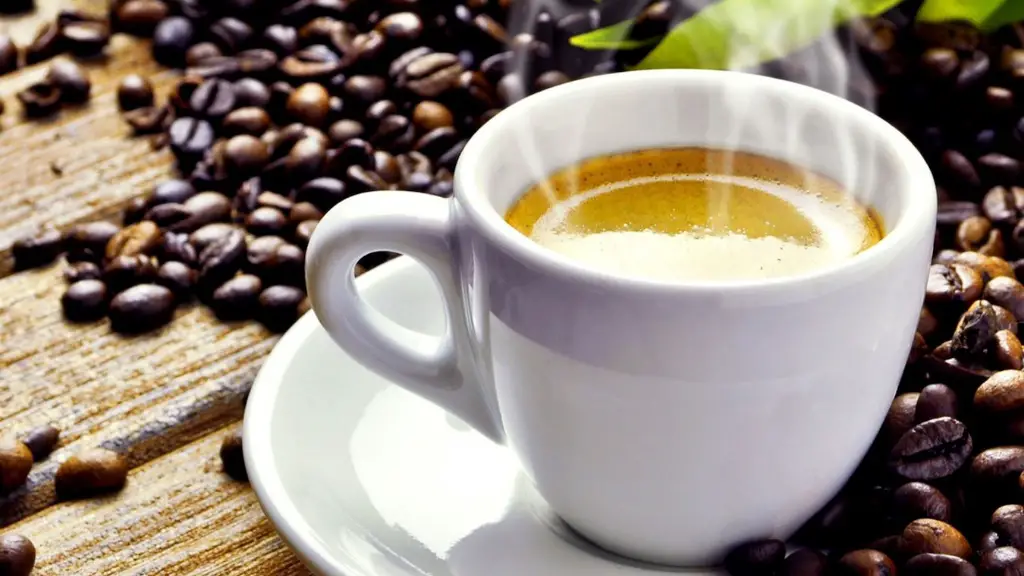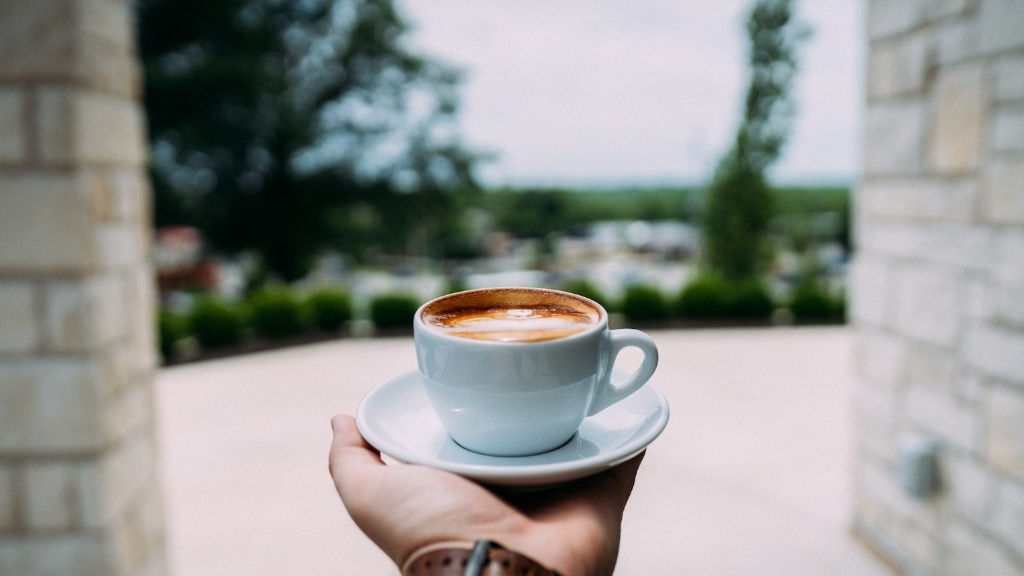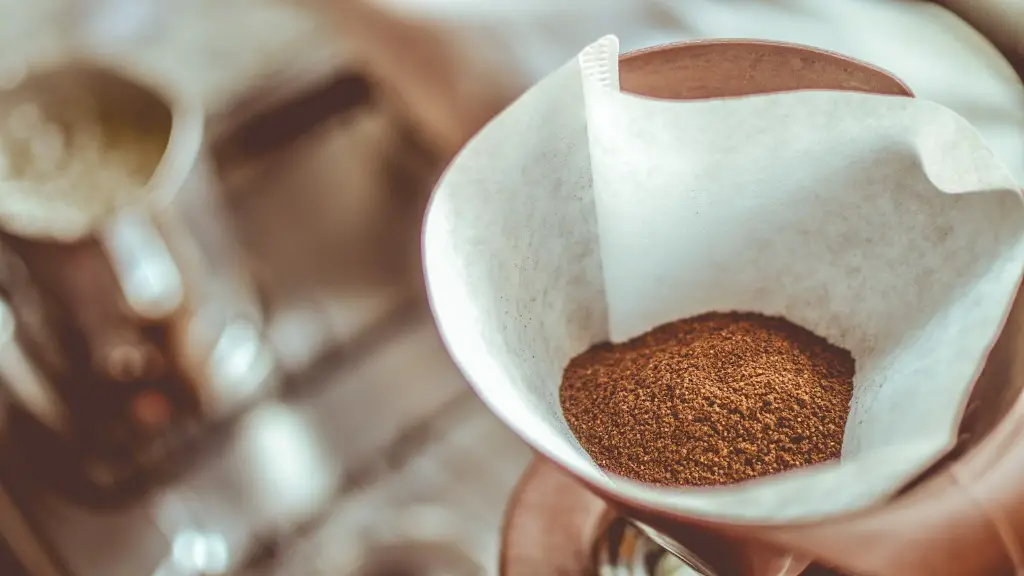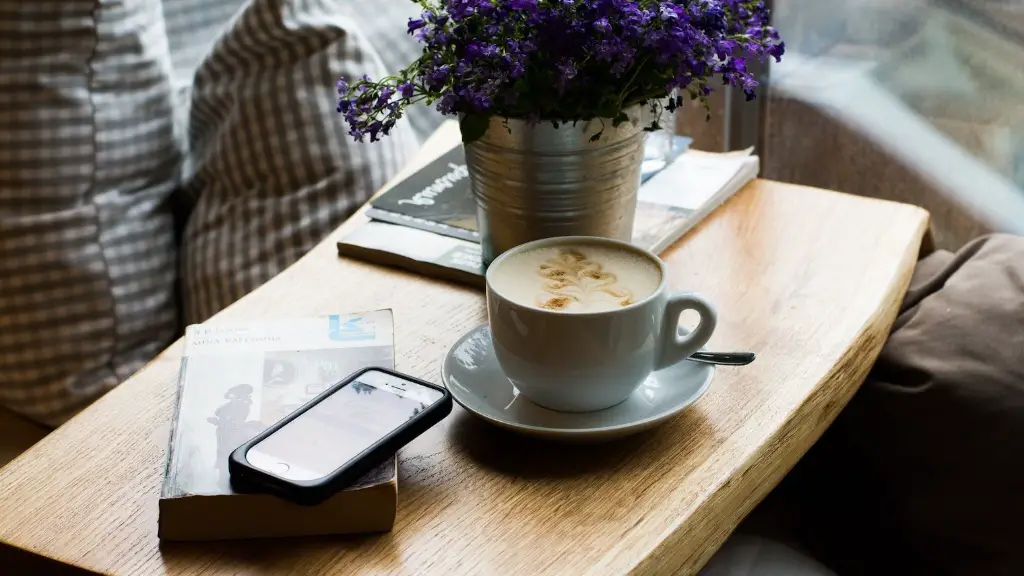For some people curious about coffee, decaf seems like a sensible solution – one that will help them wind up for the evening without any of the anxiety often associated with regular coffee. However, for some, decaf can make a poor drinking choice at night, with consequences that are less than desirable.
In terms of its caffeine content, decaf coffee generally has between 1–15mg of caffeine per cup. This amount is almost insignificant when compared to regular coffee, yet its presence could potentially have an impact on your sleep. According to a study conducted in 2005, even small amounts of caffeine consumed several hours prior to sleep may reduce total sleep time, delay falling asleep by 10 minutes, and serve to disrupt a person’s sleep cycle.
The caffeine content of decaf is not the only thing to consider when drinking at night. Other compounds found in coffee beans can also affect your alertness and ability to sleep. Chlorogenic acid, for example, contributes to the taste and aroma of coffee and is known to delay sleep onset when consumed four to six hours prior to going to bed.
That being said, there are many who do not experience any interruption to their sleep from drinking decaf coffee at night. It is a matter of individual responses to caffeine. So, the best way for an individual to determine if decaf is appropriate for them to drink at night is to note their reactions and symptoms related to drinking decaf coffee.
If after having decaf you feel more alert than usual, have difficulty falling asleep, or are having disrupted sleep, it may be time to consider reevaluating your beverage choice. On the other hand, if you experience no ill effects, then likely decaf will have no negative impact on your sleep.
If you are looking for a beverage that promotes relaxation, experts suggest a cup of herbal tea. The other additives found in teas such as chamomile, valerian, and lemon balm may help you wind down for the evening and relax as you prepare for sleep. In addition, herbal teas are generally caffeine-free, unlike decaffeinated coffees.
Overall, drinking decaf coffee at night can be a slippery slope for some, so it is important to note how it is affecting your sleep patterns. If you are making the switch to decaf, pay attention to your body. Note any adverse affects and consider switching to a caffeine-free alternative if you need help winding down for the evening.
Magnitude of Caffeine Consumption
The effects of caffeine on your sleep may vary depending on the amount that you consume. 8 ounces of regular brewed coffee can contain anywhere between 95-200 mg of caffeine – this is a significantly higher amount than that of decaffeinated coffee.
In addition, caffeine can also be found in other sources such as tea, soda, and energy drinks. If you are someone who consumes several cups of decaf throughout the day, and then transitions to a glass of iced tea or soda in the evening, the combination of those beverages and caffeine may have the same effect on your sleep as a full cup of coffee would have.
If you’re looking to monitor your evening beverages, the average 7-ounce glass of iced tea or can of soda contains between 40-45 mg of caffeine, 3-5 ounces of a brewed tea contains anywhere between 35-70 mg of caffeine, and an 8-ounce energy drink can contain anywhere between 24-200 mg of caffeine.
Considering the amount of these beverages and the magnitude of caffeine consumption might be helpful in understanding how it could impact your sleep.
Coffee, Caffeine and Anxiety
In addition to its potential to disrupt sleep, decaf coffee can also have an effect on your mood. High doses of caffeine, even from drinking decaf, can exacerbate anxiety symptoms in some individuals.
Some of the side effects from drinking coffee, in particular increased alertness and restlessness, can be similar to those of anxiety. Moreover, for individuals who already experience anxiety, drinking coffee – especially late in the day – can increase their symptoms, making it difficult to wind down for the evening.
Of course, many people enjoy the taste of coffee and having a cup in the late evening is completely fine. If you are someone who notices an increase in feelings of restlessness or anxiousness due to the taste of coffee, then decaf may be a better choice.
If you are someone who drinks coffee to overcome feelings of sluggishness in the evenings, it is likely that decaf coffee is not the best solution. While it will provide the flavor of coffee, it probably will not have the energizing effects necessary to get your mind whirring. Further, if you notice that drinking coffee enhances your anxiety symptoms, it may be best to consider switching to a caffeine-free beverage.
Reviewing the Health Benefits of Coffee
It is important to consider both positive and negatives to drinking decaffeinated coffee at night. In terms of the positive, there have been numerous studies that highlight some of the health benefits of coffee. For example, the antioxidants found in coffee have been shown to reduce inflammation, reduce the risk of certain diseases, and can even help to boost metabolism.
This means that even decaf coffee can offer some health benefits, particularly when accompanied by lifestyle modifications. However, it is best to keep in mind that the potential risks outweigh any potential benefit – specifically with regards to its potential to cause difficulties with sleep.
Ultimately, decaf coffee may serve as an occasional “pick-me-up” in the evening; however, it is not always the best beverage choice at night. Therefore, if you are looking for a warm, relaxing beverage it would be best to consider an alternative such as herbal tea.
Managing Caffeine Intake
The benefits and risks of drinking coffee at night should be carefully weighed when considering this beverage choice. If you do decide to opt for decaf, it is important to consider other sources of caffeine throughout the day, as they may have an equally disruptive effect. Be mindful of the amount of caffeinated beverages you are consuming and reset if you start to experience any of the negative side effects.
Similarly, take note of the amount of caffeine you consume in the early afternoon and late evening, as this may also interfere with your sleep patterns. If, for example, you consumed a medium-sized caffeine beverage in the late afternoon, then drinking a cup of decaf in the evening may not be the best choice.
If you are someone who is sensitive to caffeine and not able to enjoy it in moderation, then you may find the switch to decaf more beneficial for your health and overall wellbeing. However, be sure to take note of other potential risks – such as those that are associated with the other compounds in coffee beans – and consider whether or not you are willing to take those risks.
Alternatives to Decaf Coffee
When considering drinking a warm beverage at night, it is best to consider alternatives to decaf coffee in order to ensure a restful evening. One example is an herbal tea. Herbal teas often contain herbs like chamomile and lavender, which can be an effective way to wind down for the evening.
Other alternatives to decaf coffee include warm milk or a cup of hot chocolate. Both are warm, soothing drinks and can provide the same comforts a cup of coffee might. Lastly, there are a variety of teas that contain no caffeine; these “zero-caffeine” teas are a great option if you’re looking for a warm beverage to enjoy late in the evening.
Ultimately, the decision whether or not to drink decaf coffee at night is up to you. If you are someone who is sensitive to caffeine or already experiences difficulty in winding down for the night, it may be best to chose an alternative evening beverage.





